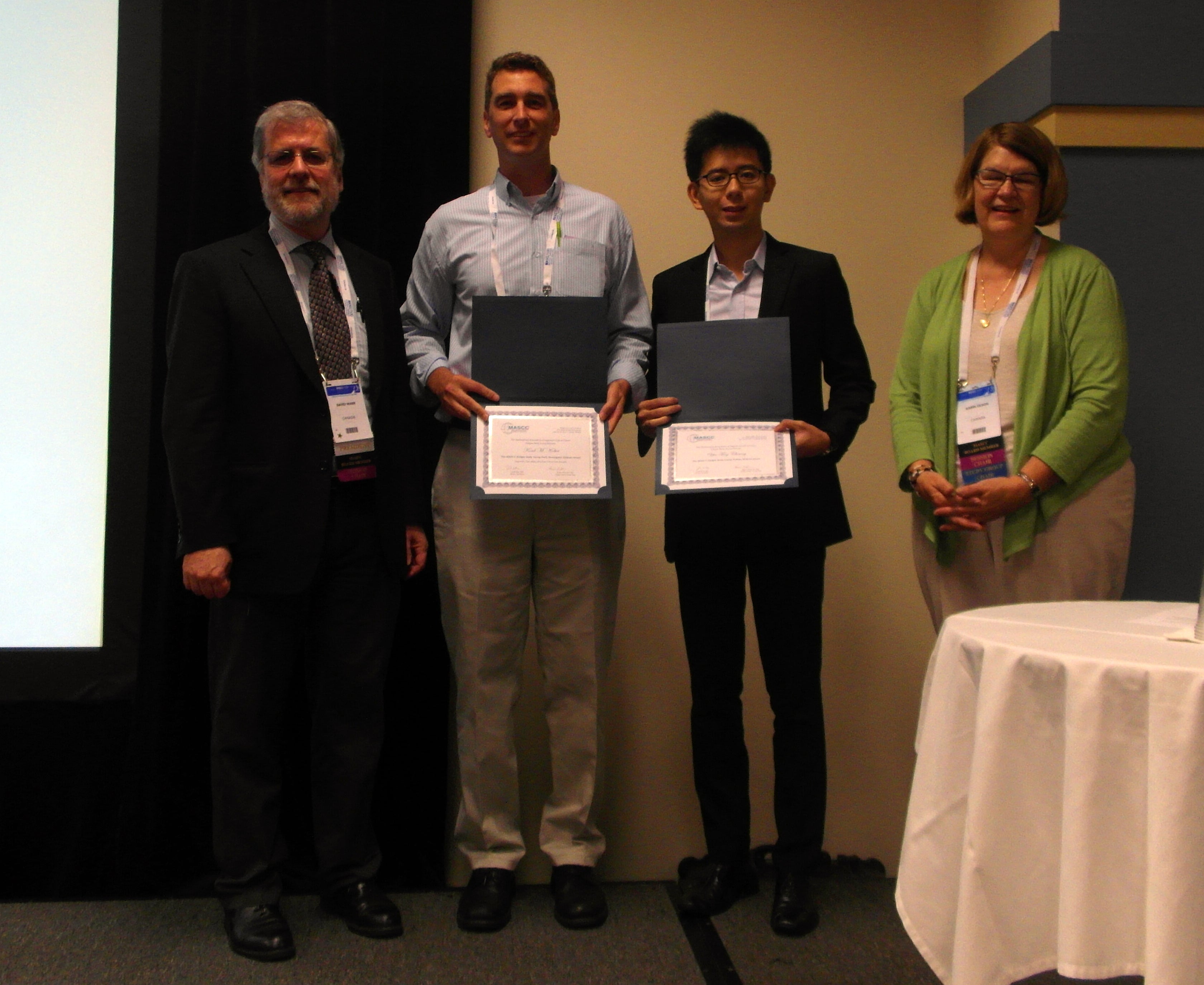Impact of cancer fatigue in local breast cancer patients
Alexandre CHAN (Group Leader, Pharmacy) () December 02, 20142 Dec 2014. NUS pharmacist students were awarded for the best fatigue abstract trainee award in Miami, USA.
With the advent of therapeutics and the improved early detection of malignancies, the number of breast cancer survivors is predicted to increase over the next decade. Toxicities from anti-cancer treatments are detrimental and patients with breast cancer are often plagued by a wide range of treatment-induced toxicities that lead to functional impairment with great economic, emotional and social cost.
There is a paucity of studies that focus on the symptom burden of breast cancer patients, particularly the clinical effects of cancer-related fatigue (CRF). Knowing that early-stage breast cancer is curable, it is of paramount importance to evaluate the clinical and biological determinants of lingering symptoms in patients so that appropriate strategies can be formulated to manage breast cancer survivorship. Specific patient characteristics and biological factors may contribute to different degrees of CRF among Asian breast cancer patients; however there is a lack of research data in the literature. Genetic factors may also play a role to increase a patient’s risk for CRF. In a recently published systematic review that was authored by the research group (Ng T, et al. Cancer Treat Rev 2014), patients with catechol-O-methyltransferase (COMT) gene polymorphism are at high risks for developing CRF.
Over the past few years, a research team led by Prof Alexandre CHAN from the Department of Pharmacy in NUS has conducted preliminary evaluation on the impact of CRF in local breast cancer patients. Based on their preliminary results, CRF appeared to be the worst after the end of chemotherapy treatment. These results were recently presented at the Multinational Association Supportive Care in Cancer (MASCC) annual meeting in Miami, USA. Department of Pharmacy PhD candidate Mr Terence NG Rong De and recent graduate Dr CHEUNG Yin Ting were jointly awarded for the best fatigue abstract trainee award at the meeting for their work (see Figure).
Currently, the research team is conducting a large-scale, multicenter study to evaluate the prevalence and severity of CRF among Asian breast cancer patients, and to identify the clinical characteristics and biological factors that are associated with CRF among such patients. Recruitment of patients is currently ongoing. Participants will be assessed over 1 year period, and various biological factors and symptoms associated with CRF will be assessed. This study is led by Prof Chan and his research team has successfully received funding from the National Medical Research Council (NMRC) Clinician Scientist-Individual Research Grant to embark on this study. This pharmacist-led multidisciplinary research is also in collaboration with the clinicians from both National Cancer Centre Singapore and KK Women’s and Children’s Hospital.
More details on the award can be found here: http://www.mascc.org/fatigue-abstract-award

Mr Terence NG (NUS Pharmacy PhD Candidate; second to the right) received his Best Fatigue Abstract Trainee Award from Professor David Warr, President of MASCC and Professor Karin Olson, Chair of MASCC Fatigue Study Group.
Reference
Ng T, Chan M, Khor CC, Ho HK, Chan A. “Cancer Treat Rev.” 40 (10) (2014) 1199.


